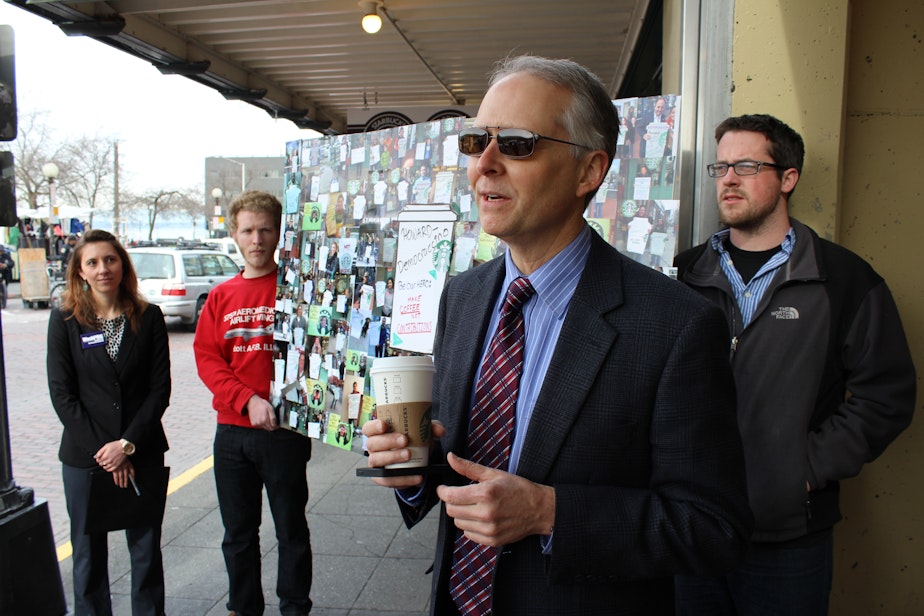UPDATE: Starbucks Shareholders Want Ban On Political Contributions

Story last updated by Phyllis Fletcher on March 20, 2013 at 1:50 p.m.
Starbucks holds its annual shareholders’ meeting Wednesday in Seattle. On the agenda: a proposal from a group of investors that’s meant to limit the company’s involvement in elections.
The proposal comes from activist shareholder John Harrington. It would prohibit Starbucks from using any corporate funds for political campaigns. It would also prohibit the company from forming a political action committee.
Earlier in the week supporters of the proposal gathered in front of the first Starbucks store in Seattle’s Pike Place Market. They said the proposal is part of a nationwide movement to get big money and corporations out of the political process and to make elections more democratic.
“Howard Schultz has said that earning the public trust is key to the success of Starbucks,” said Kelly Ngo of the group, Public Citizen. “Adopting this policy is just one more way to get the public on your side.”
Sponsored
Bruce Herbert, founder of Newground Social Investment in Seattle, said it’s something that Starbucks’ customers would support.
“If you think of Starbucks’ customers, it’s a progressive lot,” said Herbert. “We think the company would benefit reputationally, as well as from a profitability point of view, by taking this next concrete step.”
Herbert says Starbucks has been open to these sorts of shareholder concerns. In 2009, shareholder pressure prompted the company to adopt more open and transparent rules about its political activity, he said.
In 2011, Starbucks CEO Howard Schultz announced he would no longer make any personal political contributions until Congress made a deal on reducing the deficit, and he called on other CEOs to do the same.
“Let’s send a powerful message to Washington that we no longer want to embrace the status quo and we want change,” Schultz told CNN.
Sponsored
At Tuesday’s rally, supporters held up photographs of customers calling on the Starbucks CEO to “be our hero.”
Nonetheless, Starbucks is urging shareholders to reject the proposal.
A Starbucks spokesman said in a statement the company has a responsibility to shareholders "to advocate for public policies that support the health of our business.” The statement said the proposal would put the company at a “marked disadvantage” to its competitors.
The change might not have much of an impact on the business today, though. Starbucks has reported making no political contributions for the last three years.
UPDATE: March 20, 2013 1:50 p.m. by Phyllis Fletcher
Sponsored
A preliminary vote count at today's shareholder meeting indicates the proposal is failing.


